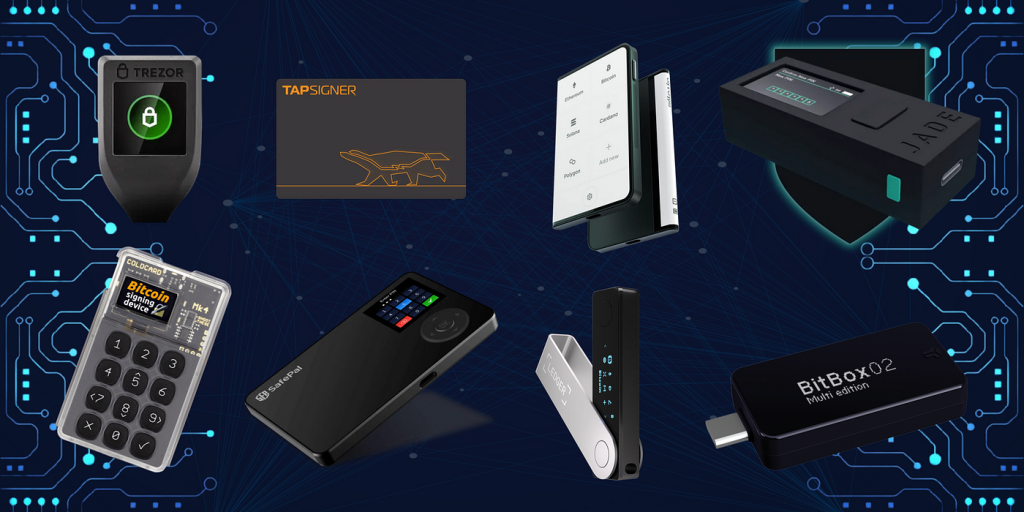Crypto Cold Wallets: What You Need to Know
If you are a crypto enthusiast, you probably have heard of the term “cold wallet”. But what exactly is a cold wallet and why is it important for crypto security? In this article, we will answer these questions and more, so you can make an informed decision about which cold wallet to use for your digital assets.
What are cold wallets and why are they important for crypto security?
A cold wallet, also known as a hardware wallet or a cold storage device, is a type of cryptocurrency wallet that securely stores your private keys offline, usually on a physical device, to protect them from unauthorized access. Private keys are the secret codes that allow you to access and control your cryptocurrencies on the blockchain. If someone gets hold of your private keys, they can steal your funds and impersonate you.
Cold wallets are considered more secure than hot wallets, which are connected to the internet and run on software or apps. Hot wallets are convenient and easy to use, but they also expose your private keys to potential hacking or theft from malicious actors. According to some estimates, over $3.8 billion worth of crypto was stolen in hacks in 2022.
Cold wallets offer several advantages over hot wallets, such as:
– Higher level of security: Cold wallets store your private keys in an encrypted chip that is immune to malware or viruses. They also require you to authorize each transaction by pressing physical buttons or scanning QR codes. This makes it harder for hackers to access your funds without your knowledge.
– Greater control: Cold wallets give you full ownership and control over your cryptocurrencies. You don’t have to rely on third-party platforms or services that may compromise your data or funds. You can also backup your seed phrase (a set of words that can restore your wallet) offline or use Shamir Backup (a technique that splits the seed phrase into two parts) for extra security.
– More functionality: Cold wallets support a wide range of cryptocurrencies and tokens, including Bitcoin, Ethereum, Litecoin, Dogecoin, and many more. Some cold wallets also offer additional features such as staking (earning passive income by locking up coins), swapping (buying or selling coins with other currencies), buying (using a card or bank transfer), or sending (to other addresses).
What are the main features and benefits of different types of cold wallets?

There are many types of cold wallets available in the market, each with its own features and benefits. Here are some of the most popular ones:
– Hardware wallets: These are physical devices that look like USB drives or metal boxes. They have an integrated screen and buttons that allow you to interact with them. Some examples of hardware wallets are Ledger Nano S Plus2, Trezor Model T, KeepKey, Ellipal Titan, etc.
– Software wallets: These are applications that run on your computer or smartphone. They generate random private keys for each transaction and store them locally on your device. Some examples of software wallets are Exodus, Coinbase dApp, Blockstream Jade, SafePal S1, SecuX V20, CoolWallet Pro, etc.
– Paper wallets: These are printed copies of your private keys that you store on paper or cardboard. They look like QR codes that can be scanned by anyone who has access to them. Paper wallets are very simple and cheap to create, but they also have some drawbacks such as losing them, damaging them, or exposing them to water or fire.
– Metal wallets: These are metal cases that contain one or more private keys inside them. They look like jewelry pieces that can be worn as accessories. Metal wallets offer high security and durability compared to paper or plastic ones.
What are the best cold wallets available in the market and how to choose the right one for your needs?
The best cold wallet for you depends on several factors such as:
– Your budget: Cold wallets vary in price depending on their features and quality. Hardware wallets tend to be more expensive than software ones, but they also offer more functionality and security.
– Your preferences: Cold wallets differ in design and usability depending on their interface and functionality. Some people prefer hardware devices because they offer more convenience and simplicity than software ones.
– Your needs: Cold wallets cater to different needs depending on their compatibility and support for various cryptocurrencies and tokens.
Conclusion
Crypto is changing all the time, so you need to stay on top of it. By learning about cold wallets and picking the right one for you, you can secure your future in the digital world. They are the best way to keep your digital assets safe and sound. Cold wallets are devices that store your private keys away from the internet, so hackers can’t touch them. Cold wallets don’t just protect your crypto, they also let you do more with it. You can stake your coins, swap them for other currencies, buy them with your card or bank, or send them to anyone you want. This article has shown you the pros and cons of different cold wallets, so you can choose the one that suits you best.




